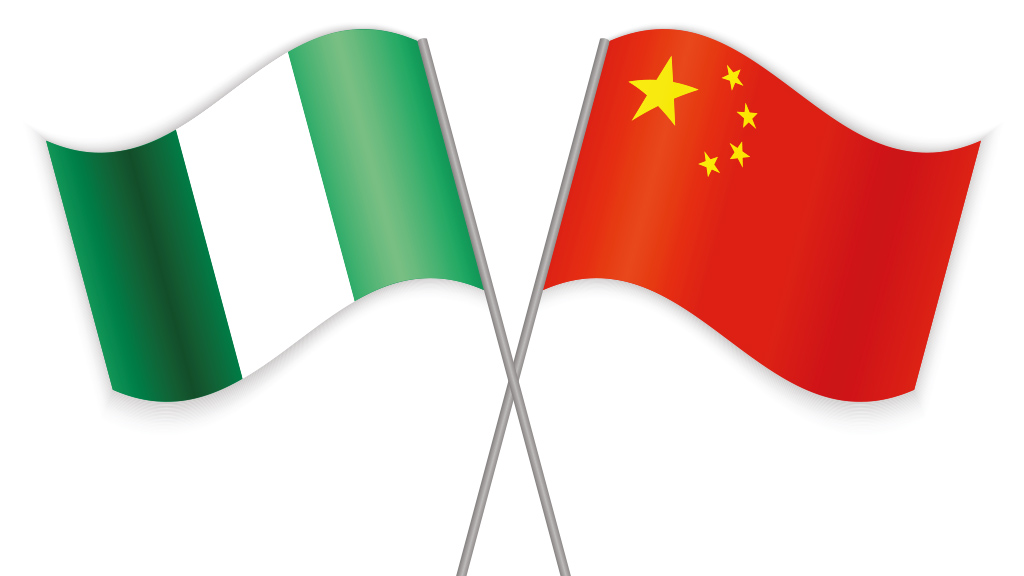CEM Report, Lagos
As at March 31, 2020, the Total Borrowing by Nigeria from China was USD3.121 billion (N1,126.68 billion at USD/N361). This amount represents only 3.94% of Nigeria’s Total Public Debt of USD79.303 billion (N28.628 trillion at USD/N361).
Nigerian Debt Management Office made the submission in a press release Thursday.
DMO said that in terms of external sources of funds, the Loans from China accounted for 11.28% of the External Debt Stock of USD27.67 billion at the same date. These data, show that China is not a major source of funding for the Nigerian Government.
The nation’s debt manager further ex[lain that the loans are concessional with Interest Rates of 2.50% p.a., Tenor of Twenty (20) years and Grace Period (Moratorium) of Seven (7) years. The Terms and other details of the Loan are available at www.dmo.gov.ng.
These Terms are compliant with the provisions of Section 41 (1a) of the Fiscal Responsibility Act, 2007. In addition, the low interest rate reduces the Interest Cost to Government while the long tenor enables the repayment of the principal sum of the Loans over many years. These two benefits, make the provisions for Debt Service in the Annual Budget lower than they would otherwise have been if the Loans were on commercial terms.
The USD3.121 billion Loans are project-tied Loans, according to DMO. The projects, (eleven – 11 in number as at March 31, 2020), include: Nigerian Railway Modernization Project (Idu-Kaduna section), Abuja Light Rail Project, Nigerian Four Airport Terminal s Expansion Project (Abuja, Kano, Lagos and Port Harcourt), Nigerian Railway Modernization Project (Lagos Ibadan section) and Rehabilitation and Upgrading of Abuja – Keffi- Makurdi Road Project.
Others as contained in a separate document are Nigerian National Public Security Communication System Project, Nigeria ICT Infrastructure Backbone Project, Nigerian Zungeru Hydroelectricity Power Project, Nigerian 40 Parboiled Rice Processing Plants Project, Nigerian Supply of rolling stock and Depot Equipment to Abuja Light Rail Project and Nigeria Greater Abuja Water Supply Project.
In providing defense for the loans, DMO said that the impact of these Loans is not only evident but visible. It sighted the Idu – Kaduna Rail Line which has become a major source of transportation between Abuja and Kaduna, and the new International Airport in Abuja, which has improved air transportation for the populace.
The projects also have the added benefits of job creation, not only by themselves but through direct and indirect service providers, a number of which are Small and Medium Enterprises.
DMO explain the borrowing process and summarized by affirming that the borrowing is a joint activity between the Executive (FEC) and the Legislative (NASS) Arms of Government.
[ALSO READ] Rising cost of Food pushes Nigerian Inflation up further by 12.40 Y-o-Y in May
However, concerning the question which bothers on the terms and conditions of the loan agreements, especially, regarding taking possession of the projects financed by China if Nigeria defaults in the servicing of the loan, DMO did not make categorical statement.
On this, DMO stated that “Firstly, Nigeria explicitly provides for Debt Service on its External and Domestic Debt in its Annual Budgets. In effect, this means that Debt Service is recognised and payment is planned for. In addition, a number of the projects being (and to be) financed by the Loans are either revenue generating or have the potential to generate revenue.”
There have been specific worries of recent by some stakeholders that the terms of the contracts signed with Chinese firms and the agreements for most of the loans obtained are shrouded in secrecy, as reported by Guardian Newspaper in March.
“They are, therefore, planning to ask why the firms are the sole executors of most of the projects and why materials and skills are being imported from China to undermine local industry and jobs. They are also demanding to know the cost of the projects which is believed to have been inflated”; Guardian reported.
Guardian quoted the Minister of Transportation, Rotimi Amaechi, as saying that “since China was financing the projects through the China Civil Engineering Construction Corporation (CCECC), the contractors had 100 per cent execution right on them”.
The growing concern about Nigeria and China loans and contracts deals is being fuelled by some revelations and warning coming from recognized international bodies.
Natural Resource Governance Institute (NRGI) had alerted Africans to the fact that resource-backed loans hovering around $164 billion with 77 per cent coming from two Chinese banks, China Development Bank (CDB) and the China Eximbank, were shrouded in secrecy and crippling debt levels in developing countries.
Regarding Nigeria current total public debt, Vice Chairman of the Senate Committee on Foreign and Local Debts, Senator Muhammad Enagi, had put the total debt stock would be about N33 trillion and 21 Debt/GDP ratio with the recent approval of the 2016-2018 External Borrowing Plan.












